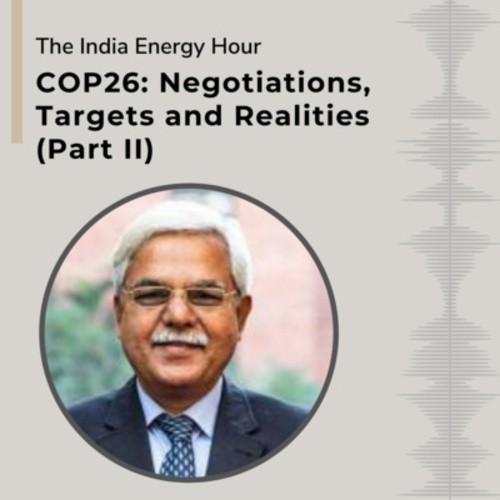
COP26: Negotiations, Targets and Realities (Part-II) | Episode 17
The India Energy Hour Presented by 101Reporters
Episode · 0 Play
Episode · 1:00:11 · Oct 26, 2021
About
COP26, the world’s biggest climate change conference, is now only a week away. After traversing through the history and functioning of climate negotiations in the first part of our COP special series, in this second part, we delve into key negotiation points at COP26, India’s role in the current negotiations, and what could be the bottlenecks and common grounds between developed and developing world. For this episode, we interviewed RR Rashmi, Distinguished Fellow and Programme Director, Earth Science and Climate Change at The Energy and Resources Institute (TERI). Mr. Rashmi was India’s former principal negotiator for climate change negotiations under the United Nations Framework Convention on Climate Change. Time stamp: 0:00 - Podcast intro 1:20 - About RR Rashmi and his professional journey 11:52: How has India’s climate negotiation powers changed on the global stage? 28:09:  Key issues that policymakers around the world are going to discuss and what will be India’s position? 38:36 - Will India benefit from climate finance? Is there a need to declare Net Zero 46:35: Are we not committing to phase out coal because we lack the data of how much would be our energy demand? 50:21: India's own plan to reduce coal usage keeps changing. Can we take aggressive steps on coal and gas like the USA and UK? 53:09: What would be the bare minimum that needs to happen to make this COP a success and the maximum? And ideal outcome for a country like India? 59:42 - Podcast outro Follow TIEH podcast on Twitter, Linkedin and YouTube.
1h 11s · Oct 26, 2021
© 2021 Podcaster